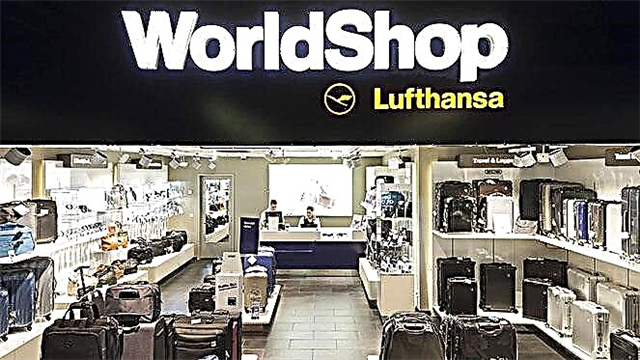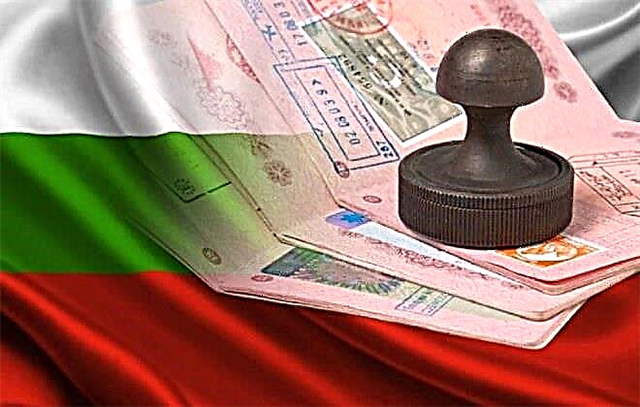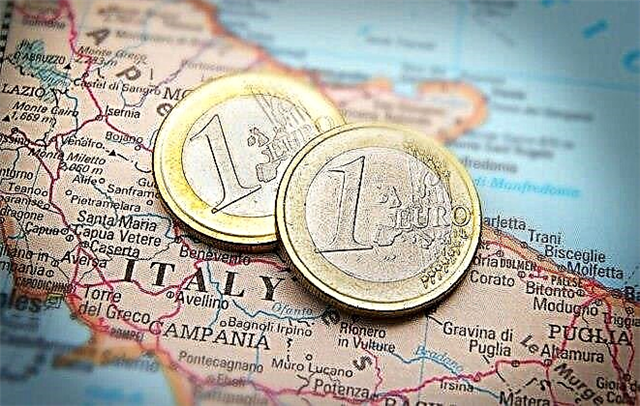Entrepreneurial activity in a foreign country is associated with a number of risks. The success of the plan depends on the correctly chosen direction, knowledge of the laws and the ability to do business with people of a different mentality. To open a business in Italy, you don't have to prove every year that the company brings some benefit to the country. And this can be considered a great advantage for those who decide to earn capital in this particular part of Europe.

Legislation
The Italian Republic is a member of the European Union, NATO and a signer of the Schengen Agreement. The attractiveness of this state for foreign investors lies in the stability of the economy and the transparency of the legal framework.
Those who intend to enter the Italian market should know:
- The country's authorities treat both resident and non-resident entrepreneurs equally. This means that Russian companies in Italy are subject to the same laws and enjoy the same rights and benefits as local ones.
- To open a company, a foreigner will need a national visa of category D. Without it, any activity in the country will be considered illegal and will lead to deportation with a ban on subsequent entry.
- A business owner does not need to prove every year that his company is profitable, it is enough just to pay taxes and comply with the laws.
- Formally, there are no requirements for the financial situation of a businessman. But preference is given to those who have at least 100 thousand euros on their account.
- It is almost impossible to get a loan for a foreigner for business development. But you can count on some subsidies from the EU, if, for example, you take a direction that will contribute to the development of the southern regions of the country.
Organizational forms
Business investment will be profitable if properly planned. First, you need to choose the legal form that the company will take:
- LLC (Societa per azioni) - a business in Italy for Russians in this format implies the presence of an authorized capital of 120 thousand euros. 25% of that amount must be credited to the account of the company as soon as it is registered. The number of founders is not limited. Management can be carried out both by the board of directors and by a single director appointed at the general meeting of shareholders. Directors can be shareholders of the company at the same time. Issue of registered and bearer shares is allowed. Societa per azioni is obliged to appoint a full-time auditor for current accounting and a board of independent authorized auditors. It is the most popular form, but not quite suitable for foreigners, since it involves the employment of at least 50 employees.
- JSC (Societa a responsabilita limitata) - the authorized capital limit is 10 thousand euros, which are deposited into the account immediately after registration. It is allowed to issue only registered shares, which cannot be freely transferred to third parties without the approval of the general meeting. Societa a responsabilita limitata can be managed by the board of directors or a single director. The firm must have an auditor on its staff.
- Joint-stock partnership (Societa in accomandita per azioni) - does not endow the company with a legal status, and therefore does not provide for the contribution of the authorized capital.
- General partnership SNC (Societa in nome collettivo) - allows any number of founders. This form is more suitable for micro-companies with an annual turnover of up to 2 million euros and with a staff of up to 10 people. The downside of SNC is the highest tax in comparison with other forms.
For those who are interested in small business in Italy, individual entrepreneurship is more suitable. It will be inexpensive to open an individual entrepreneur, and in the process of work it will be possible to use a flexible taxation system. A foreign citizen will have to obtain a work permit, which will give the right to simultaneously engage in entrepreneurship and work for hire.
Choosing a direction
 Beginners need to know that Italian business is family-run. Italians prefer companies and people they know personally. Even bribes here from strangers are not accepted, only by acquaintance.
Beginners need to know that Italian business is family-run. Italians prefer companies and people they know personally. Even bribes here from strangers are not accepted, only by acquaintance.
When choosing a niche, one should also take into account that the leading direction in the north of the country is industry, while the south lives on agriculture and tourism.
So, what ideas to look out for:
- SPA centers and beauty salons - Italians do little themselves in terms of personal care. They prefer to turn to specialists, the shortage of which is strongly affecting here.
- Restaurants and small fast foods - Italian or Russian orientation is a bad idea. The best option would be something in between takeaway and homemade food, in other words, a combination of cooking speed and healthiness. Alternatively, you can offer a mobile cafe where you can dine on street food.
- Agriculture - buying a farm in Italy will be a great idea for those who are versed in this field. Italians are very fond of organic products, grown organically, without pesticides and antibiotics.
- Repair of computer equipment - you can win in this direction due to efficiency (Italians are not too quick) and lower pricing policy.
- A clothing store - you will have to think carefully about such an idea, since you will not surprise anyone with an ordinary boutique. As an option - a studio for the disposal of unnecessary clothes, which can be used to create new models.
- Translation services - You can't call Italians polyglots. Many of them, apart from Italian, no longer speak any language, and therefore you can earn money on this service.
Business visa processing
To cross the Italian border for the purpose of doing business, you will need an Italian business visa. It belongs to category D, is national, gives the right to long-term residence in the country and registration of a residence permit.
To obtain a visa permit to open a company, you need to prepare a business plan and submit it for consideration to the consulate. If the project is approved, you can prepare visa documents.
Package of documents
To submit to the consular department you will need:
- Visa application.
- Copy of a civil passport.
- Foreign passport with copies of all pages.
- 2 photos.
- Business project as proof of the purpose of entry.
- Hotel reservation or invitation from an Italian citizen.
- Proof of financial security.
- Insurance.
Entrepreneurs who did business in Russia or in any other country of their citizenship must attach a certificate of registration of the individual entrepreneur and an income statement from the tax service for the previous reporting period. All papers must be translated into Italian and notarized.
How to register a business in Italy
Before starting the process, it is important to understand how to open a business in Italy and what formalities must be followed. Having entered the country on a national visa, a businessman needs to apply for a residence permit, after which he can proceed to the company registration procedure.
Step by step, the entire path can be represented as follows:
- Draw up and notarially approve charter papers.
- Open a bank account.
- Pay the prescribed tax to the treasury.
- Obtain a license if required by the line of business.
- Inform the Employment Center about the employment of employees.
- Prepare the necessary accounting documents.
If all submitted papers meet the stated requirements, the Chamber of Commerce will make an entry in the register of companies. Registration of a legal entity or individual entrepreneur will cost 200-300 euros.
Package of documents
 Documents for registration of the company are submitted to the Chamber of Commerce and Industry. This must be done at the department of the city in which you are undergoing the procedure (that is, there is no need to travel from Bologna to Rome to submit a petition) or on the department's website.
Documents for registration of the company are submitted to the Chamber of Commerce and Industry. This must be done at the department of the city in which you are undergoing the procedure (that is, there is no need to travel from Bologna to Rome to submit a petition) or on the department's website.
To do this, you will need:
- The unique name of the company.
- List of activities.
- A document confirming the lease of commercial real estate or its purchase.
- The company's charter and the composition of the founders.
- An extract from the bank on the crediting of funds acting as the authorized capital.
- International passport.
- Residence permit.
- Taxpayer code.
All registration information will be sent to the entrepreneur's email address. The procedure will take no more than a week.
Acquisition of an existing company
An alternative to creating a new company can be the purchase of an existing company. For those who choose this option, it is important to know how to buy a ready-made business. To begin with, you should conduct an audit of the facility according to the following criteria:
- analysis of the latest financial balance;
- assessment of the value of existing funds;
- checking the history of the company and its legal data;
- information about employees.
Be sure to read reviews about the company on the Internet.
When you buy a hotel or other business, it is important to understand why it is being sold. It is best to carry out the sale and purchase procedure with an experienced lawyer who will re-register the company to a new owner.
Going to business negotiations, do not forget about the peculiarities of etiquette. Italians attach great importance to appearance: clothes, shoes, demeanor.
The business culture in Italy is also different from what you are used to in your home country. For example, it is customary to be late here, and not by 5 minutes, but by as much as half an hour.
Italian banks
 The Italian banking system consists of two levels. The first is the Central Bank, the second is specialized and commercial financial structures.
The Italian banking system consists of two levels. The first is the Central Bank, the second is specialized and commercial financial structures.
The Bank of Italy was founded in 1893 as a result of the merger of three structures operating in the country at that time. Today in Italy there is no separate law governing the activities of the Central Bank. This is done by numerous regulatory documents.
Banks in Italy fall into the following categories:
- state;
- cooperative;
- banks of national interests;
- loan and savings;
- central credit;
- branches of foreign banks.
Tax system
Taxation in Italy is the most complex system in all of Europe. The state budget receives 80% of all state revenues.
The peculiarities of doing business in Italy are largely due to the size of tax rates:
- personal tax on income received is calculated on a progressive scale and fluctuates in the range of 23-43%;
- corporate tax on profits to the state budget - 33%, to the regional - 4.25%;
- VAT is 22% (the food sector pays 10.5%, the book business 4%);
- regional production tax from 1.2 to 2.03%.
More than 350 documents regulate taxes in Italy.
Immigration for businessmen
You can get a residence permit in the Italian Republic if the following conditions are met:
- the chosen direction of activity is not prohibited;
- the company is interesting to the country's economy;
- the candidate did not violate Italian, European and international law.
Having lived with a residence permit for at least 5 years, a foreigner can apply for permanent residence. This type of stay in the country is no longer limited to terms.
Business immigration to Italy ends with obtaining citizenship, but this can only be done with at least 10 years of experience in the country. The prerequisites include: mastering the Italian language, financial stability, housing and no offenses.
Outcomes
A summary table of pros and cons will help you decide whether to migrate to Italy as an entrepreneur:
| Advantages | disadvantages |
|---|---|
| equal rights for foreigners compared to local residents; | high tax rates; |
| stable economy; | great competition in many areas of activity; |
| a wide range of activities; | impossibility to go through legalization according to a simplified scheme; |
| simple registration procedure; | peculiarities of the mentality of Italians. |
| the possibility of entering the European market; | |
| obtaining a residence permit on the basis of business immigration; | |
| no need to prove the profitability of the company annually. |











